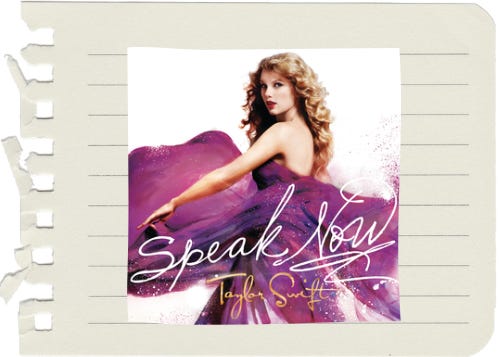Why you don't have to write everyday
I’m being a bit contrary here because, of course, if you want to write everyday, you absolutely can. Don’t let me or anyone else stop you.
But what I’m speaking to is the kind of writing advice that is heard so often it becomes gospel and we can easily fall under it’s spell.
Write everyday is one of those pieces of advice that pervades the writing world but can be deeply problematic.
Let me declare straight up, and this might already be obvious, I don’t write everyday.
I probably could if I wanted to. I could push some other responsibilities aside, carve out that time in the diary, make it non-negotiable. But I don’t want to. I really don’t.
You may already know that I have rebel parts who don’t like being told what to do. They want to pave their own way so of course they’re going to deride all-or-nothing advice. (More about that here).
But that’s not why I don’t write everyday. I don’t write everyday because I think it makes me a better writer.
I’m not sure where this so-called writing wisdom originated from or why it’s been so pervasive but maybe this why it’s been spouted so often. I think we’re advised to write everyday so…
We don’t dodge writing
We commit, we’re focused, we show up to the page no matter how we’re feeling or what’s going on in our life. We don’t make excuses. If we’re a writer, we write!
We stay connected to the story
There’s this idea that if we stray for too long from our writing, we won’t be connected enough and we’ll get off track and then the story will spiral out of control or be disjointed or be, well, terrible.
We can’t decide otherwise
It eliminates decision fatigue. Instead of waking up that morning and wondering, what do I feel like doing today? Do I want to write? Or do I not want to write? The decision is already made. We write.
I’m sure there are a number of other reasons why people suggest you should write everyday but let’s move on to why this might be a bad idea.
I know I’m being contrary. And please, if you love writing everyday day, ignore every word I’m saying.
But if you don’t write everyday and feel guilty or feel like you should or believe that real writers write everyday and if you don’t then you’re not a real writer or if only your life were different and you could write everyday, then you’d be happy. Well, no.
Here’s why you don’t need to write everyday…
Writing is not just writing
The creative process is not just about getting words on the page. Yes, you do need to get words on the page in some coherent, story-arc way to produce a finished short story, essay or book. But writing is also a process of imagining, dreaming into being, stewing and gestating. Every creative project is. That’s why…
Writing benefits from pauses
I’ve talked about how the most important aspect of writing is Listening. (You can read more about that here). Listening requires pausing. We could pause for a moment when we’re in the midst of writing. But we can also pause by leaving our writing for a day or two to let things brew, for ideas to flow, for insights to emerge. And in between drafts, we might also pause for longer by putting aside our writing for a few weeks.
You’re not a writing machine
I feel like the advice to write everyday speaks to overinflated ideas about productivity. Busyness. Doing for the sake of doing. Writing for the sake of writing. That can lead to burnout (see how I burnout not once but three times here). And it can also mean we get words quantity-wise but the quality is compromised. We’re not writing machines. We’re creators.
We don’t have to write everyday but we can stay connected to our story everyday.
When I started writing my second novel, I asked my book to tell me what song would represent it well.
The song that emerged was Taylor Swift’s Enchanted. This isn’t that surprising given I’m a Swiftie.
But every time I wanted to connect with my book, whether I was cooking dinner, driving in the car or brushing my teeth, I could hear the line, “I was enchanted to meet you.”
I could hear it and feel it and I could connect to the emotion and the energy.
Here’s another way I stay connected to my book when I’m not writing
I ask my intuition to help me. I might ask…
What needs to happen in the next chapter? (the inevitable next chapter - more about that here)
Why is that character behaving that way? What’s really going on?
What sort of cafe should these two characters meet next?
You can ask your intuition to help you with a plot problem or a character detail or a setting dilemma. In fact, anything.
And even if you don’t explicitly ask your intuition for help, it will be working in the background to help with that next bit of writing, particularly if we focus on Listening and not Thinking.
Here’s one more way to stay connected to your writing
When I’m going about my day, I sometimes check in with my characters.
I might ask them:
What are you doing right now?
How are you feeling?
Anything you want me know?
I’ll take note and then keep going on with my day.
By all means, write everyday if you want to and you can.
But if you can’t, you’re like most writers who also have lives. And that might just help you to write a much better book.









